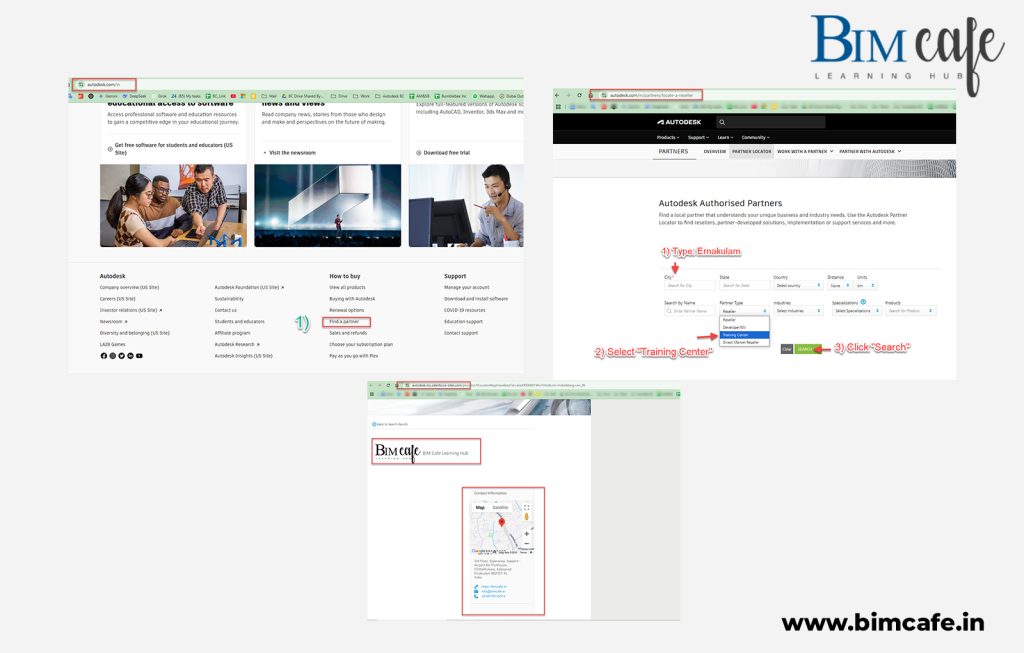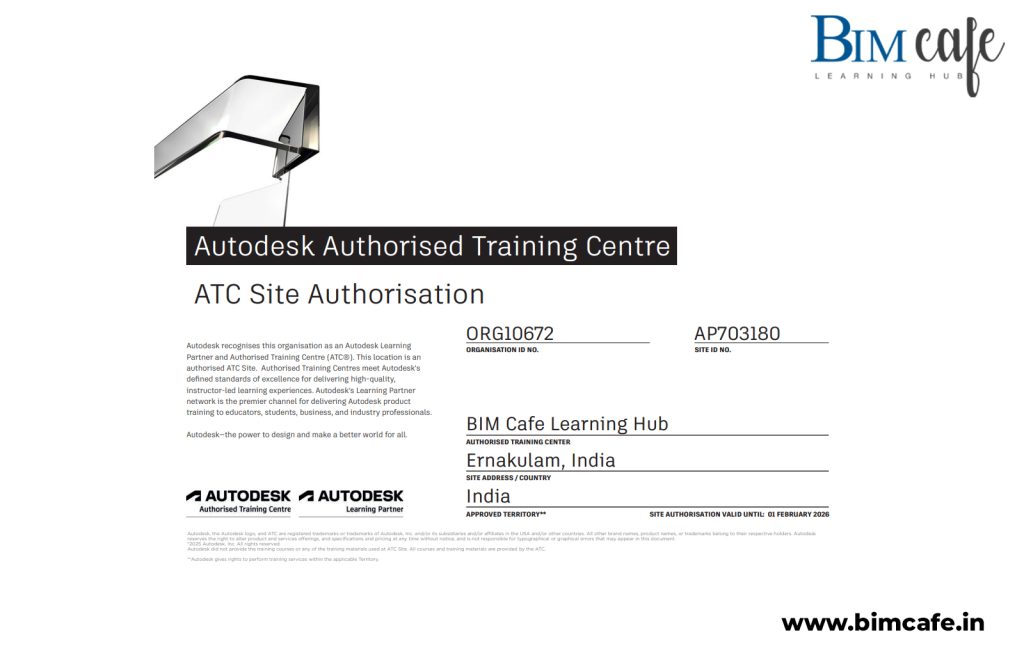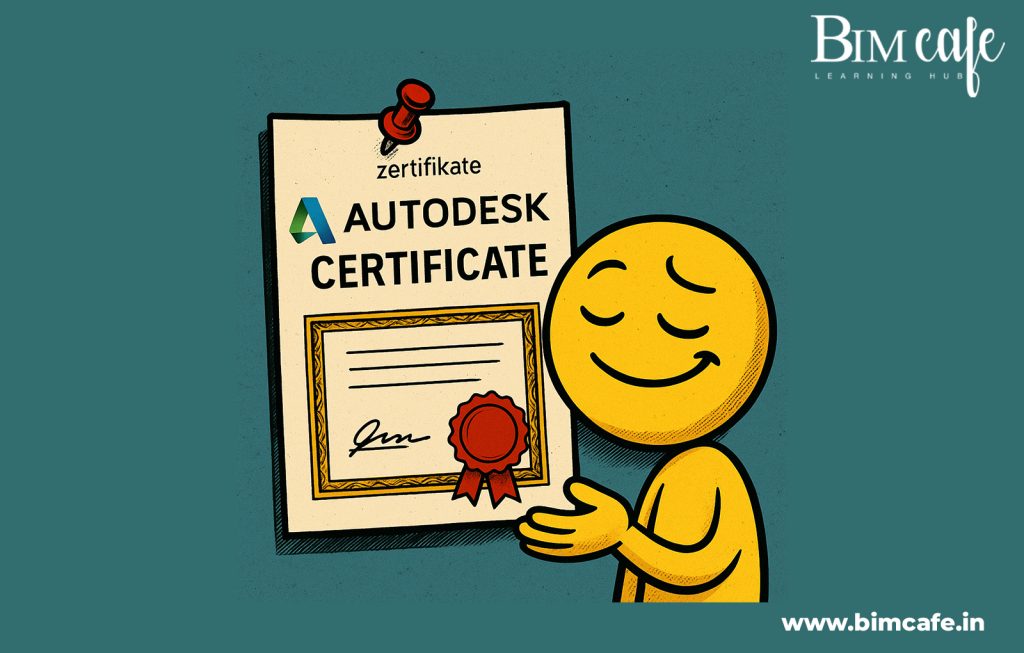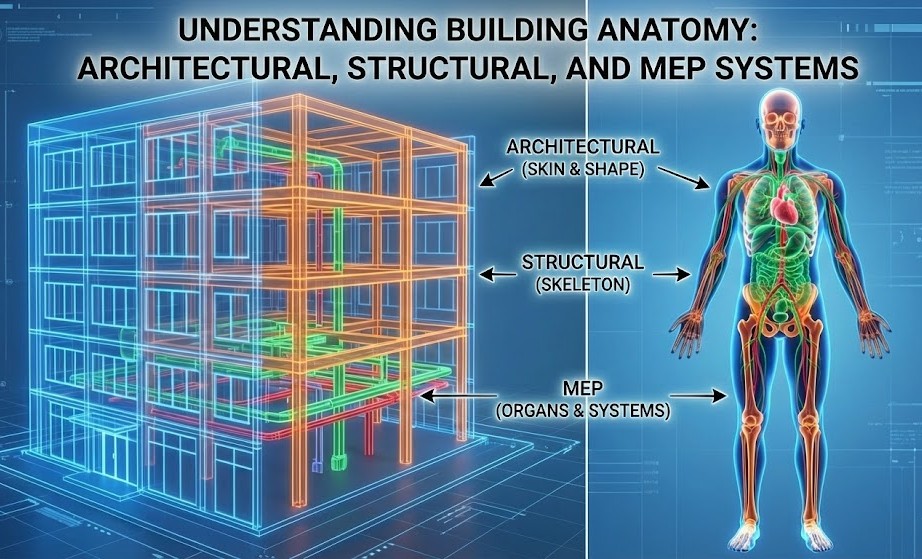
Author: Devika R
May 21, 2025
5 min read
In today’s rapidly growing design and BIM education landscape, it seems that every institute claims to be “certified,” “internationally affiliated,” or even “Autodesk-approved”—often with a logo conveniently lifted from Google Images.
But here’s the question smart learners are asking:
Are these claims real, or just well-dressed scams?
Let’s break down the truth without any sugar coating so you won’t be misled by fake training centres that make the loudest noise while the real experts focus on building successful futures.
What Is an Autodesk Certified Partner?
Autodesk, the global powerhouse behind Revit, AutoCAD, Navisworks, and other essential AEC tools, has a rigorous international standard for recognizing official training institutions.
These are called:
Autodesk Certified Training Centers (ATCs)
To earn ATC status, an institute must:
- Use licensed Autodesk software
- Employ certified, trained instructors
- Maintain industry-standard infrastructure
- Follow Autodesk’s certification protocols
The result?
Learners receive globally verifiable certifications, not a glorified PDF whipped up in MS Word with a pirated logo.
Why You Should Care
Because your career is not a gamble, a certificate from an unauthorized institute is worthless to real employers. It’s like buying a doctor’s degree online and expecting to perform surgery.
On the other hand, certified Autodesk partners offer:
- Verifiable certificates with serial numbers
- Access to official Autodesk tools and learning paths
- Training that aligns with real-world industry needs
- Ethical practices (no fake logos, no false promises)
How to Spot a Fake Training Centre
Let’s be honest, some of these “academies” have more polish on Instagram than in their actual syllabus.
Here’s how to catch a poser:
- They claim Autodesk certification but aren’t listed on the official Autodesk Partner Locator.
- Their certificates are generic, non-trackable, and full of fluff.
- They misuse Autodesk branding in brochures and banners, a clear violation of trademark policy.
- They spend more time trashing real training centres than improving their own.
Heads up: Misusing Autodesk’s name or logo is a direct violation of Autodesk’s brand guidelines and can result in blacklisting, revocation, or legal action.
Want to verify a training partner before enrolling?

Use Autodesk’s official Partner Locator Tool to check if a center is truly certified:
https://www.autodesk.com/in/partners/locate-a-reseller
If the institute isn’t listed there, it’s not authorized — no matter how many logos they print. Because real certification comes from Autodesk
The Real Deal: BIM Cafe Learning Hub

Enter BIM Cafe Learning Hub, a genuine Autodesk Certified Training Centre that checks every box. At BIM Cafe, you’ll find:
- Licensed Autodesk Tools: Get hands-on training with Revit, AutoCAD, Navisworks Manage, Recap Pro, BIM 360, and more — all using official licensed software.
- Verified Autodesk Certifications: Earn globally recognized certificates issued directly by Autodesk, ensuring credibility and industry acceptance.
- Real-World Project Learning: Learn through practical, project-based training that mirrors real industry challenges and workflows.
- Placement Support via DDG BIM Services: Benefit from job placement opportunities through BIM Cafe’s service firm and partnerships with leading companies.
- Access to Additional Tools: Expand your skills with tools like SketchUp, 3ds Max, Staad Pro, ETABS, Dynamo, PyRevit, DiRoots, and more.
Real Certification, Real Access

When you train with a genuine Autodesk Certified Training Center like BIM Cafe Learning Hub, you don’t just get a certificate, you get direct access to Autodesk’s official platform. Upon successful course completion, students receive their Autodesk Certificate of Completion, generated directly by Autodesk, not the training institute.
These certificates are:
- Issued through Autodesk’s secure online system
- Marked with the Autodesk Certified Partner logo and the name of the training centre — e.g., BIM Cafe Learning Hub
- Trackable and globally verifiable
This means your certification is not just authentic, it’s officially recognized worldwide and backed by Autodesk itself.
So next time someone hands you a PDF with a pixelated logo, ask:
Can I verify this on Autodesk’s website?
If the answer is no, that’s your red flag.
To the “Certificate Factories”… Here’s a Sarcastic Hug

To the self-proclaimed “international training centres” proudly handing out Autodesk certificates like birthday cards:
Maybe spend less time on Canva and more on compliance. You brag about placements in Dubai, Germany, and sometimes… the Moon — but your students can barely complete a Revit wall without a YouTube tutorial.
And those slander campaigns against real Autodesk partners?
That’s not a strategy. That’s insecurity.
Blaming authentic institutions for your shortcomings is like blaming Google for not verifying your Yahoo email.
Final Thoughts
Autodesk certification is more than just a logo, it represents credibility, quality, and adherence to global standards. In a competitive field like BIM, it’s not about how flashy your certificate looks, but about the skills you’ve gained and the authenticity of the institution you trained with.
If you’re serious about shaping a strong career, don’t get swayed by flashy discounts or empty promises.
- Choose authenticity.
- Choose real results.
- Choose BIM Cafe Learning Hub.
Because your future deserves more than shortcuts and false claims.
Ready to invest in real skills and recognized credentials? Enroll now at BIM Cafe Learning Hub — your trusted Autodesk Certified Training Centre.




